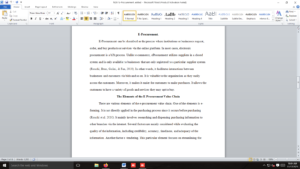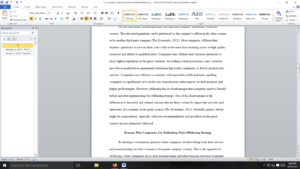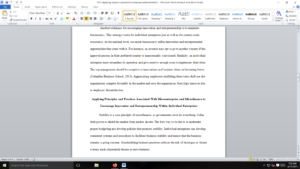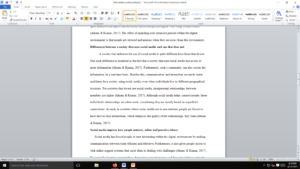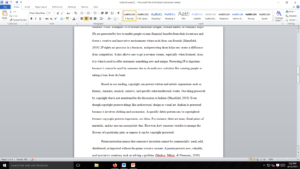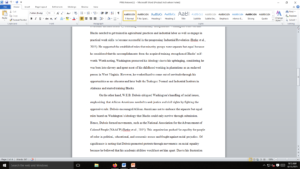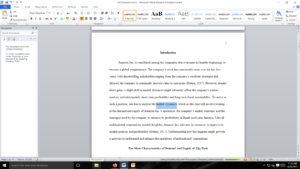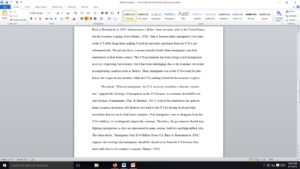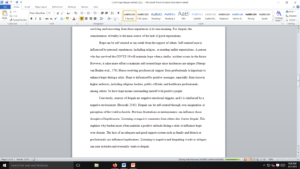i-have-a-term-paper-coming-up-and-need-some-help-i-am-supposed-to-be-giving-king-charles-ii-advice-on-european-affairs
The term paper (which takes the place of a final exam): this assignment requires you to pretend are offering advice to the new King Charles II or his privy council in 1660 and you must do so by drawing upon the history which you have absorbed in our course this semester. You may offer advice to the new king or his council on any subject or theme you wish, but your paper must make detailed reference to the contents of at least one of the primary source documents which have been provided for discussion this semester. Your paper should also clearly draw upon material from our textbook (Tombs). In addition, your paper can draw upon any other readings provided for this course (eg the optional readings or articles provided to supplement weekly reading). I can also upload additional readings on specific topics if you request them (and I can find suitable readings on that topic!).
We will cover the 1650s in the final module of our course (Topic 10 in Week 15), but here is some background information which will help you to contextualize the term paper in advance of Week 15:
In January 1649, Charles I was executed after losing two civil wars and the monarchy in England and Ireland was abolished (the story in Scotland was a bit more complicated). The puritans who supported the parliamentary side in the Civil Wars of the 1640s had already ensured that the Church of England was also dis-established. England, and later Ireland and Scotland, were governed by an English republic, effectively based upon the power of the army and dominated by puritan-style religion. Between 1653 and 1658, this English Republic (known as the Commonwealth) was dominated by a military strongman, Oliver Cromwell, who was given the title of Lord Protector. However, after Cromwell’s death in 1658, the republic rapidly fell apart. This is why the monarchy was revived in 1660 (“the Restoration”) and Charles I’s eldest son was invited back from exile overseas to become Charles II. This makes 1660 a very interesting time: the experiment with republicanism and puritan religious policies had failed, but Charles could not directly challenge most of those associated with the republic if he wanted to restore national unity and build support for himself as king. The very word “Restoration” itself also suggested a return to political normality (after a very abnormal twenty years!) and a revival of England’s traditional (ie historical) practices and values.
These are the historical circumstances in which your term paper is supposed to offer some kind of advice to Charles II as he prepares to become king, or to his new privy council. As noted above, this advice must draw upon some of the history which we have covered in the course this semester and must meet the very basic source requirements noted above (which I have kept to a minimum to give you maximum flexibility).
The key criteria for assessing the term paper will be: (i) the thought and imagination which the paper shows in using ideas and material from our course this semester to respond to the advice-writing scenario which has been laid out here; (ii) that the paper maintains the imaginary advice-writing scenario by reflecting some basic cultural assumptions of the era; and (iii), less importantly, that the paper meets the minimum source requirements laid out above and is coherently structured, references sources where appropriate and reads well.
What do we mean by the expectation that the term paper should reflect some of the basic cultural assumptions of the society which we have studied this semester? We have explored numerous cultural assumptions of English history before 1660 in class this semester, most directly in discussing the primary source extracts. Some of these basic assumptions include, for example: views on religion and God’s role in human affairs; a continuing fear of religious pluralism because of the challenge which it posed to notions of political and social unity; a belief in the special value of history as a means of finding guidance for informing future actions; and a growing recognition of the political significance of the common people, but still a revulsion towards the idea of real democracy (which would challenge the social order supposedly ordained by God) and as rejection of any formal role for women (except as the sovereign).
Some basic formatting guidance for your term paper:
-the paper should be 5-7 pages in length
-the paper must be double-spaced, with the pages numbered and uploaded to Canvas as a PDF file
-the paper should include references or citations (in-text, footnote or endnote) for the sources used in writing it: a reference is mandatory when you quote from a source or when you paraphrase a point that would not be considered as basic knowledge within our course
Here is the Prospectus I wrote for this term paper:
Although I am not a historian or an expert in international relations, I would offer King Charles II of England advice on how to navigate the complex political landscape of seventeenth-century Europe. My main argument is that, as a newly restored monarch, Charles II should prioritize diplomatic efforts to secure his position as a major player in European affairs.
To support this argument, I will draw upon the primary source document, “The Grand Design,” written by Sir William Temple in 1663. In this document, Temple outlines his vision for English foreign policy, advocating for a balance of power in Europe and caution in making alliances. Temple also emphasizes the importance of trade and economic relationships in international diplomacy.
I plan to use Temple’s ideas to argue that Charles II should prioritize diplomatic efforts to secure favorable economic and political relationships with other European powers. Specifically, I will recommend that Charles II pursue alliances with other Protestant powers, such as the Netherlands and Sweden, in order to counterbalance the influence of Catholic states like France and Spain.
Additionally, I will draw upon material from our textbook, Robert Tombs’ “The English and their History,” to provide historical context for Charles II’s reign and the political climate of seventeenth-century Europe. Tombs’ analysis of the English Civil War and the Glorious Revolution will be particularly useful in explaining the challenges facing Charles II as he attempts to establish his legitimacy and authority.
To supplement my argument, I will also draw upon secondary sources such as John Brewer’s “The Sinews of Power,” which explores the role of economic and financial resources in early modern European diplomacy. This source will help me to further emphasize the importance of economic relationships in international politics, and to highlight the ways in which Charles II can use England’s economic resources to strengthen its position in Europe.
In conclusion, my advice to King Charles II would be to prioritize diplomatic efforts to secure favorable economic and political relationships with other European powers. By drawing upon Sir William Temple’s “The Grand Design” and other primary and secondary sources, I have argued that Charles II should pursue alliances with other Protestant powers in order to counterbalance the influence of Catholic states like France and Spain. Through these efforts, Charles II can establish England as a major player in European affairs and secure his position as a strong and stable monarch.
Below is the note my professor left for me:
Finley, what is the source which you describe as Sir William Temple’s ‘Grand Design’ of 1663? I can’t identify it, although it seems a lot like something written by the French duke of Sully in the early 1600s. This is why it is really important to give adequate citations for materials used in papers from outside the standard range of course materials. Speaking of which, I can see your mention of the textbook by Tombs, but I don’t any mention of one (or kore) of the document extracts which we have discussed in class this semester. Your final paper needs to discuss at least one of these extracts. I also get the strong sense that you see your paper drawing upon ideas and events from after 1660 (eg the Brewer book). This knowledge can certainly help inform your ideas for the paper, but it does need to respond to the scenario of offering advice to the new or incoming ‘Charles II’ in 1660
Answer preview
Furthermore, I would insist on diplomatic relations as England on its own; any external attack would shake its power and influence among other European nations. Therefore, allying with Netherlands and Sweden would enhance its strength in defending itself. The Foreign policy implemented by Cromwell in attacking Spain, an indirect way of thwarting France, was an over-ambitiously constructed strategy that failed to meet the expected goals, leading to a continental war (Cunningham, 1938). This is not what Britain needed, especially with the state of its internal affairs (Tombs, 2016). King Charles II needed a different perspective to ensure he built international relations from the country’s bad blood with superpowers such as Spain and France in Europe. On the same note, while making alliances, Charles should be cautious of the parties involved in the alliances regarding their trustworthiness. This ensures he does not end up in situations where the other parties involved fail to honor their end of the bargain,
[1575 Words]

Economic and political relationships
